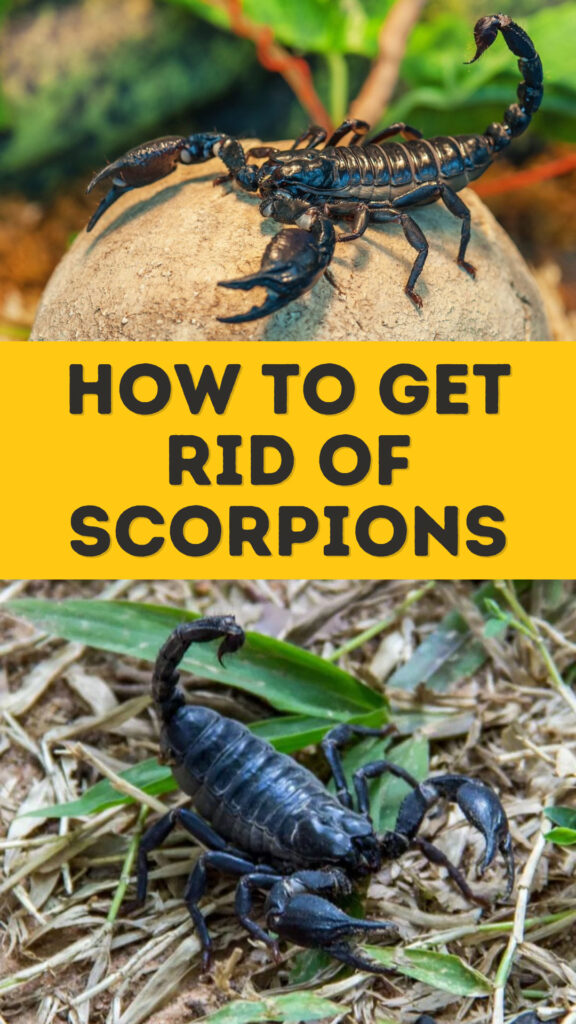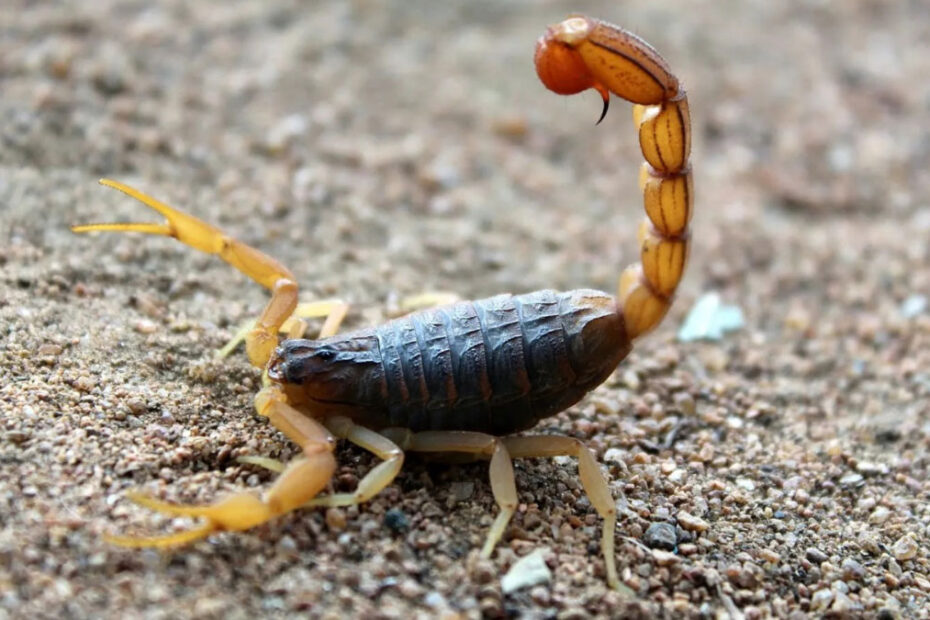Finding a scorpion in your home can be a startling experience. These nocturnal predators not only give you the creeps but can also pose a risk to your family’s safety. Knowing how to get rid of scorpions effectively is crucial for maintaining a secure and comfortable living environment.
You don’t have to live in fear of these unwelcome guests. With the right strategies, you can eliminate scorpions from your home and prevent them from coming back. In this text, you’ll discover practical tips and proven methods to keep your space scorpion-free.
Key Takeaways
- Understanding Scorpion Behavior: Knowing the common types of scorpions and their behavior can help tailor your control strategies effectively.
- Preventive Measures: Sealing entry points, eliminating food sources, and removing shelter areas are crucial steps to deter scorpions and prevent infestations.
- Natural Remedies: Essential oils, diatomaceous earth, and sticky traps offer non-toxic options for repelling scorpions and reducing their activity in your home.
- Chemical Treatments: Insecticide sprays and professional pest control services provide targeted and often more comprehensive methods for scorpion elimination.
- Safety Precautions: Personal protection and safe handling of chemicals are vital to ensure your well-being when dealing with scorpions and using control methods.

Understanding Scorpions
Scorpions are predatory arachnids known for their venomous stings. Understanding their nature and behavior can help you effectively manage and prevent infestations.
Common Types of Scorpions
Various scorpion species may invade homes, but some are more common than others. Knowing these types can aid in identification and control.
- Bark Scorpions: Slim, yellowish-brown scorpions typically found in southwestern US states. They are most dangerous due to their venom.
- Emperor Scorpions: Large, black scorpions common in Africa but sometimes kept as pets. Generally less harmful to humans.
- Striped Bark Scorpions: Light brown scorpions with darker stripes along their back. Found in Central and North America.
Why Scorpions Invade Homes
Scorpions enter homes for various reasons. Understanding these motivations can help in prevention.
- Shelter: Scorpions seek out dark, cool places to hide, like basements and closets.
- Food: They follow their prey, such as insects, into homes.
- Moisture: Homes with leaking pipes or high humidity attract scorpions seeking water sources.
By identifying common scorpion types and understanding why they invade, you can better protect your home.
Preventing Scorpion Infestations
Scorpions in your home can be alarming, but a proactive approach helps keep them out. Focus on these key areas to reduce the risk of an infestation.
Sealing Entry Points
Scorpions often enter homes through small cracks and gaps. To keep them out:
- Inspect and Seal: Check doors, windows, and foundation for gaps. Use caulk or weatherstripping to seal them.
- Screen Repairs: Ensure all window and door screens are intact. Use fine mesh screens to block scorpions.
- Vent Covers: Install covers on vents and drains to prevent scorpions from entering through these access points.
Eliminating Food Sources
Scorpions prey on insects, so reducing their food supply helps deter them. Consider these actions:
- Pest Control: Use insect repellents or professional pest control services to limit the number of insects in your home.
- Clean Habits: Keep your kitchen clean, store food properly, and dispose of garbage regularly to avoid attracting bugs.
- Outdoor Lighting: Use yellow outdoor lights, which attract fewer insects, thereby reducing the food source for scorpions.
Removing Shelter Areas
Scorpions seek out dark, moist areas for shelter. Make your home less inviting by:
- Decluttering: Remove piles of wood, stones, or debris around your property where scorpions may hide.
- Moisture Control: Fix any leaks and avoid overwatering plants, as scorpions are drawn to moist environments.
- Regular Yard Maintenance: Trim overgrown vegetation and mow the lawn frequently to eliminate hiding spots.
Take these steps to safeguard your home from scorpions, using a holistic approach to tackle the problem from multiple angles.
Natural Remedies
Using natural remedies can effectively repel scorpions without relying on harsh chemicals. Various natural substances and methods are known to deter these pests.
Essential Oils
Essential oils are potent natural repellents. Several oils have properties scorpions find unpleasant.
- Lavender Oil: Strong scent that repels scorpions.
- Cedarwood Oil: Contains cedrol, a compound scorpions avoid.
- Peppermint Oil: High menthol content makes it an effective deterrent.
To use these oils, mix 10-20 drops with water in a spray bottle and apply around potential entry points like doors, windows, and vents.
Diatomaceous Earth
Diatomaceous earth (DE) is a natural substance derived from fossilized algae.
- Definition: Fine, white powder that damages exoskeletons of insects and arachnids, including scorpions.
- Application: Sprinkle DE along baseboards, windowsills, and other entry points.
For best results, ensure DE stays dry, as moisture reduces its effectiveness.
Sticky Traps
Sticky traps provide a chemical-free method to capture scorpions.
- Placement: Place traps in areas where scorpions are likely to travel, such as along walls and near baseboards.
- Monitoring: Regularly check and replace traps to maintain their effectiveness.
Using sticky traps helps monitor scorpion activity, guiding further prevention measures.
Employing these natural remedies, you can effectively keep scorpions out of your home while maintaining a safe environment.
Chemical Treatments
Chemical treatments offer a practical approach to eliminating scorpions from your home. These methods, involving the use of various chemicals, effectively reduce scorpion populations and prevent future infestations. Below, you’ll find detailed strategies on chemical treatments.
Insecticide Sprays
Insecticide sprays are widely used for scorpion control. These products, available in various formulations, target and kill scorpions on contact or through residual action.
Key Terms:
- Contact Insecticides: These sprays kill scorpions immediately upon contact.
- Residual Insecticides: These sprays remain effective over time, killing scorpions that come into contact with treated surfaces later.
Steps for Using Insecticide Sprays:
- Identify Areas: Locate common scorpion hiding spots such as baseboards, corners, closets, and around windows.
- Select Product: Choose an insecticide labeled for scorpion control; options include brands like Cy-Kick CS and Demand CS.
- Apply Spray: Follow the product instructions and apply the insecticide to identified areas, focusing on entry points and potential hiding places.
- Reapply as Needed: Depending on the product, reapply the insecticide every 2 to 3 months to maintain efficacy.
Professional Pest Control Services
Professional pest control services are a highly effective option for comprehensive scorpion management. Trained technicians use advanced methods and commercial-grade products to ensure a scorpion-free environment.
Key Features of Professional Pest Control Services:
- Expert Evaluation: Inspectors thoroughly assess your home to identify the extent of the infestation and potential entry points.
- Tailored Treatments: Based on the evaluation, professionals develop a customized treatment plan, using the appropriate chemicals and techniques.
- Preventive Measures: Besides immediate eradication, services often include recommendations for preventive measures to keep scorpions out.
- Follow-up Visits: Many companies offer follow-up visits to monitor the situation and address any recurring issues.
- Expertise: Access to experienced technicians knowledgeable about scorpion behavior and control.
- Safety: Use of products and methods that are safe for your family and pets, reducing health risks.
- Effectiveness: Higher success rates due to professional-grade materials and thorough application techniques.
Using these combined strategies, you can significantly lower the risk of scorpion infestations in your home, ensuring a safer and more secure living environment.
Safety Precautions
When dealing with scorpions, ensuring your safety is paramount. Proper precautions can prevent injuries and enhance the effectiveness of your scorpion control efforts.
Personal Protection
Personal protection is essential when handling scorpions or working in areas known for scorpion activity.
Essential Gear:
- Gloves: Wear thick leather or heavy-duty rubber gloves to protect your hands.
- Boots: Use sturdy boots to safeguard your feet and lower legs.
- Long Sleeves and Pants: Opt for long clothing to minimize exposed skin.
- UV Flashlight: Scorpions glow under UV light, making them easier to spot at night.
Steps:
- Inspect Gear: Check your gloves, boots, and clothing for scorpions before wearing them.
- Stay Alert: Always be vigilant and look where you place your hands and feet.
- Work in Pairs: If possible, have a partner to assist and ensure no scorpions go unnoticed.
Safe Handling of Chemicals
Using chemicals for scorpion control requires careful handling to protect yourself and others.
Key Terms:
- Insecticide Sprays: Chemicals designed to kill insects and arachnids, either on contact or via residual effects.
- Residual Treatment: A method where insecticide remains active over a period, continuing to kill pests.
- Read Labels: Carefully read the instructions and warnings on insecticide labels.
- Wear Protective Gear: Use gloves, goggles, and masks when handling chemicals.
- Ventilate Areas: Ensure proper ventilation when applying insecticides indoors.
- Store Safely: Keep chemicals in a secure location, away from children and pets.
By following these safety precautions, you can effectively manage scorpions while minimizing risk to yourself and others.
Conclusion
By understanding the behavior and types of scorpions, you can take effective steps to protect your home. Sealing entry points, eliminating food sources, and removing shelter areas are essential strategies. Natural remedies like essential oils and diatomaceous earth offer chemical-free options, while insecticide sprays and professional pest control services provide robust solutions.
Safety precautions are crucial when dealing with scorpions. Equip yourself with personal protection gear and handle chemicals responsibly. With these comprehensive methods, you’ll create a safer environment and keep scorpions at bay.
Frequently Asked Questions
Why do scorpions invade homes?
Scorpions typically enter homes in search of shelter, food, and moisture. They may find their way inside through gaps in doors, windows, and foundations.
What are some common types of scorpions that might invade my home?
Common types include Bark Scorpions, Emperor Scorpions, and Striped Bark Scorpions. Each type poses different levels of danger to humans.
How can I prevent scorpions from entering my home?
Seal entry points, eliminate food sources, and remove hiding spots. Inspect and seal gaps in doors, windows, and foundations, maintain cleanliness, and declutter regularly.
Are there natural remedies to repel scorpions?
Yes, natural remedies include using essential oils like lavender, cedarwood, and peppermint, as well as diatomaceous earth and sticky traps.
What types of chemical treatments are effective against scorpions?
Insecticide sprays, both contact and residual, can be effective. Professional pest control services offer tailored treatments and comprehensive management strategies.
How important is it to use safety precautions when dealing with scorpions?
Safety precautions are crucial. Wear gloves, sturdy boots, and long clothing. Use a UV flashlight to spot scorpions at night and handle chemicals safely by following all label instructions.
Can professional pest control services help with scorpion infestations?
Yes, professional pest control services provide expert evaluation, tailored treatments, and follow-up visits, ensuring a comprehensive strategy to manage scorpion infestations effectively.
What should I do if I am stung by a scorpion?
If stung, clean the area with soap and water, apply a cold compress, and seek medical attention as needed, especially if symptoms are severe.
What are some common hiding spots for scorpions in and around the home?
Scorpions often hide in cluttered areas, under rocks, in piles of wood, and within cracks and crevices around the home. Regular yard maintenance can help reduce these hiding spots.
